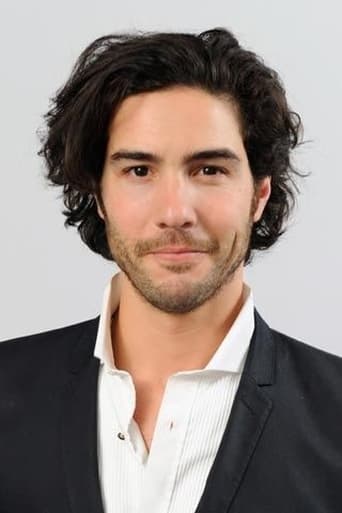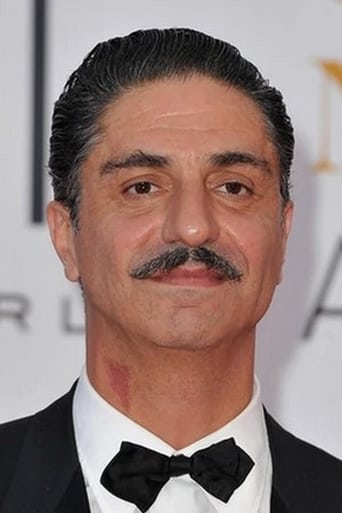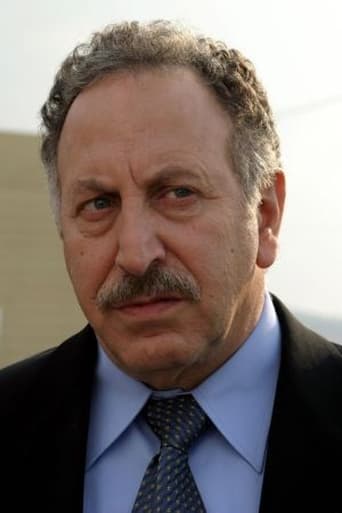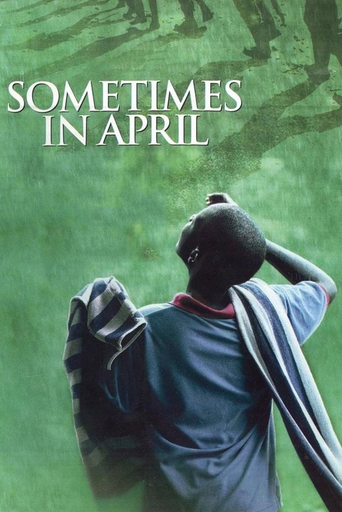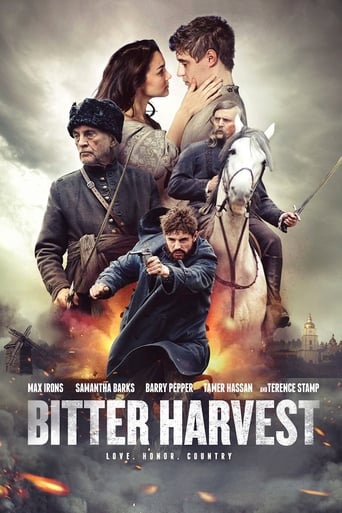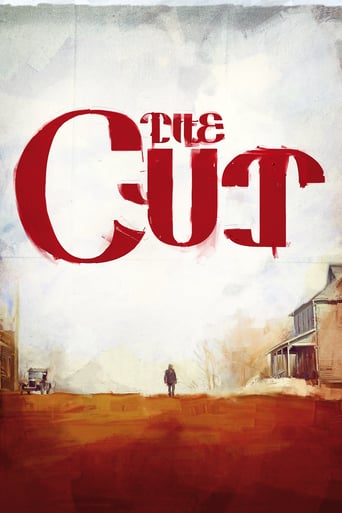
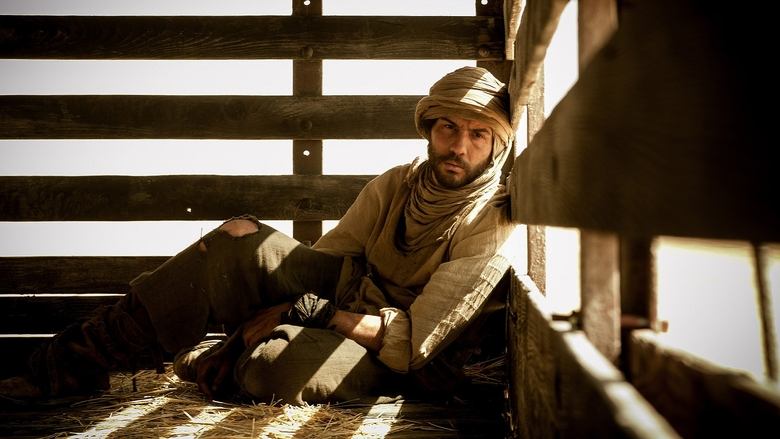
The Cut (2014)
In 1915 a man survives the Armenian genocide in the Ottoman Empire, but loses his family, speech and faith. One night he learns that his twin daughters may be alive, and goes on a quest to find them.
Watch Trailer
Cast


Similar titles
Reviews
I am generally a fan of Akin's movies and this one is not an exception. It was a very good film. The scenery is amazing, the acting is stellar, especially the main actor's mute yet very expressive performance. The story line is multi-faceted and very balanced: It does not assign guilt in just one direction. There are plenty of people who help on all sides (Armenians, Turks, Arabs, Americans), there are lots of people with personal weaknesses fighting for themselves first, including the hero, and there are barbarians everywhere also. And every page that turns gives us a new perspective on what has happened to Armenians back then.This movie is not only important to confront Turkish society with its history, it is also very timely with the global refugee crisis. It humanizes and personalizes the experience of loss and death that those who survive war and genocide go through, and the suffering of those who have to flee home in general.
IN Turkey today it is a serious crime to use the word "Genocide" in reference to the systematic expulsion of Armenians from Turkish Soil in the period from 1915 to 1923. During this time 1.5 million Armenians (highly conservative estimate!) were either murdered outright or perished on forced death marches through the Syrian desert. A few Turkish intellectuals have spoken out against the official Turkish policy of Genocide Denial but, needless to say, there has never been a Turkish film touching this theme --- Until now! THE CUT, Directed by German-Turkish filmmaker Faith Akin pulls no punches in depicting Turkish Brutality in excruciating detail and the scattering of the survivors to the far ends of the earth -- in this case Cuba, Minneapolis, and finally the frozen wastes of North Dakota in winter. Faith AKIN (42) establishedß his Credentials with the Film "Against the Wall" depicting friction between Turks and Kurds in Hamburg which won the Golden Bear Top Prize at Berlin in 2004. Since then he has continued to address controversial issues in his films with characteristic boldness. THE CUT opens in the home of the peaceful Armenian Manoogian family but soon Turkish soldiers burst in, Gestapo style, and cart all the men off for "investigation" as the rest of the family cowers in terror. Next we see the men outside doing forced labor chopping rocks but soon they are put up against a rock wall to be executed. The Turkish commander orders his men to slash their throats rather than waste precious bullets on the worthless Armenian prisoners. All are then brutally slashed to death but one young man, Nazareth Manoogian, whose neck wounds were not fatal manages to survive. (Tarah Rahim, French actor of Algerian descent!) -- however the injury has left him unable to speak -- mute. He then proceeds to turn in a fantastic performance with hardly any dialog -- only a few words of strangled Armenian late in the film. Most of the dialog if the film is however spoken in Turkish western Armenian by native Armenian actors with some Spanish in the Cuban sequence. Found half dead with partially slashed throat and rescued by a kindly Turkish man Nazaret escapes to a neighboring country and some years later learns that his twin daughters have survived and are alive, last heard from in Cuba. He works his way laboriously over to Cuba but his daughters are no longer there ~ last destination allegedly Minneapolis on the American mainland. Again the trail is cold as they have somehow moved on to rural North Dakota. Himself half frozen as he drags himself across the snowy wastes he finally comes, almost miraculously, upon the surviving daughter now full grown. Tearful reunion in a truly remote corner of the Armenian Diaspora. This grueling international road movie is based on a fiction novel but points a non-compromising finger at the grim historical reality of Turkish ethnic cleansers and genocide perpetrators, while also addressing the indomitable Armenian will to survive no matter how widely dispersed. Overall, a gripping drama as well as a compact lesson in Armenian Genocide and Diaspora studies. Aside from that a very interesting film with a towering performance by non-Armenian actor Tahar Rahim in the central nearly silent role of an Armenian holocaust survivor. Most exceptional that it is made by a Turkish director. Bravo Faith Akin! NOTE: The title refers to one of the words routinely used by Diaspora Armenians in reference to the Turkish Genocide.
This movie directed by Faith Akin really turned out to be different from what I expected. From some earlier research I had conducted, I was expecting a movie based on the story of the Armenian "genocide". However, the movie turned out to tell a story by itself. Of course, the Armenian "genocide" could be a story itself but this movie showed us something more. This movie really cut deep into the wound of a society.The Armenians have a wound and no one can deny this. No one can stand up and say that those people didn't suffer or that they were treated fairly in 1915. No historian should yell out that the Turks were just but the circumstances weren't. Maybe they can confirm this with their mind but not with their soul. And Armenians on the other side shouldn't be yelling out that the Turks have to pay for what they did. How can you make someone pay for what happened 100 years ago? Well then, the Germans should pay for what the Nazis did back in the World War II. Is that how things work around with history and the mistakes our ancestors have made in the past? Going back to the movie, it really has a touching story though it bores the viewer at some points. Not to mention some really disturbing scenes. The movie starts out kind of slow and emotional but as our main character Nazar develops; we get more interested in him than the historical bullshit going during the time. The movie achieves to capture the attention of the audience with a side story. Then that side story becomes the real story itself. A father searching for his lost daughters. The hardships and sacrifices he has to make. The emotional sufferings he has to go through. It all attracts the viewer. As a whole the movie is worth watching. One particular scene that I enjoyed the most is when an audience is watching a Charlie Chaplin movie. The scene was so ironic and filled with contrary emotions that it gave me the chills. The scene perfectly raises a purge of emotions. It also foreshadows the ending of the movie. So if you also want to be slightly cut by a misfortune event that cut many things from many people, I would say go for this movie. It is definitely worth getting cut for..
This film tackles a topic of huge dramatic potential, and it is certainly a bold move for a director with Turkish roots to take this task on, given the pathological aversion of the Turkish authorities to any reference to the Armenian genocide. Unfortunately, in my view the film fails almost entirely as a film, both technically and in terms of character development/dialog. Furthermore, it avoids really facing the issue of the genocide itself, the historical background and the sheer scale of the killings. The genocide involved hundreds of thousands of people; the film contains scenes in the desert involving a tiny group of Armenian men haplessly shifting a few rocks backwards and forwards, guarded by a few Ottoman troops - the whole scene works more like a cheaply-produced pantomime set; to portray the scale of the actual events you really need epic cinematography, which apparently the budget just wasn't up to. Then there is the totally one-dimensional plot, a series of fairly arbitrary stages on a journey, with no obvious motivations or connections for choice of scenes (why Cuba, Minneapolis ...?), no development of real relationships between any of the characters, and a final denouement that can only be termed anti-climactic. We also find numerous clichés - the barbaric Kurds (rapists), the wily Bedouin (keeping helpless Christian women captive), the saintly soap-maker - who, despite being the owner of a sizable factory, still wanders around the desert alone with his donkey and his cart, the happy Armenian tradesman and his family torn apart by the genocide etc etc. The main blessing of the film for me was that the lead character loses his voice early on in the film (another totally implausible twist of the plot), which spares us yet more of the generally flat dialogs.


